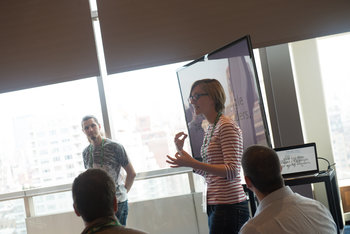
Depth of Experience
The board of directors of a corporation that spends most of its time talking about executive compensation while large risks facing the organization go undiscussed simply because this is beyond their depth of experience.Creativity & Charisma
An individual who has trouble focusing on anything that isn't excitingly creative or social. For example, a CEO who spends their time buying trendy small companies and giving media interviews while neglecting financial, operational and product problems that threaten to take the company down within months.Vanity Metrics
Focusing on exciting metrics that produce big numbers while ignoring hard realities. For example, an athlete who becomes obsessed with their social media views and followers as opposed to their training and results in their sport.Underpants Gnomes
A business that has no business model that focuses on creating value without any means of capturing value. Based on an episode of the animated series South Park whereby a group of gnomes have the following business plan.Phase 1 | Collect underpants |
Phase 2 | ? |
Phase 3 | Profit |
Broken Window Theory
A mayor of a city who uses broken window theory to suggest that minor problems such as graffiti are dragging a city down while ignoring structural economic, environmental and social problems.Pet Peeve
Obsessing over a problem that triggers emotions as opposed to problems that are likely to impact your life. For example, an individual who has severe financial, social and professional problems who spends much of their time complaining about the visual aesthetics of a neighbor's new fence.Busy Work
Pursuit of mediocrity whereby work is chosen to be easy as opposed to valuable and important. For example, a software architect who documents idealist architectures that will never be implemented that become shelfware that nobody reads.| Overview: Bikeshedding | ||
Type | ||
Definition | A tendency to overfocus on trivial problems and neglect large problems. | |
Also Known As | Parkinson's law of triviality | |
Attributed To | C. Northcote Parkinson | |
Related Concepts | ||























